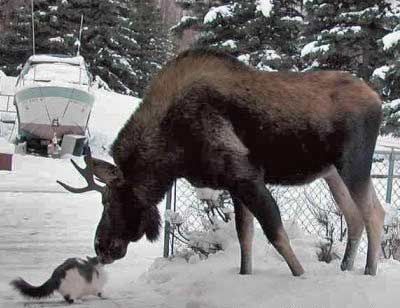One can do whatever they must with these pages. Hell, I don’t care, you have free will… if you read it and decide “Wow! This LaRouche guy looks like a Genius!”, by all means — sign up today!
I have enjoyed piecing this together, and would not have pieced it together had I not. There is something in me that enjoys both the type of flimsy excavation research necessary to piece together that series of LaRouche posts, as well as enjoying this type of topic at hand.
I have not paid enough attention to allegations that LaRouchites killed enemies’ kittens.
Anyhow.
I have access to Lyn Marcus’s Dialectical Economics, published in 1975 by DC Heath and Company — likely LaRouche himself, interestingly enough placed right next to some of Karl Marx’s work (Marcus followed by Marx). Its 400 pages look just as dry and dull as it sounds. It is this type of book that I cannot possibly imagine ever having possessed a dust jacket, lest it lose its anonymous place is a row of books in a musky selling used book store, which is its proper place for perpetuity. I cannot imagine anyone having read it or checked it out of the library in quite a while, though I suppose it has had to have been — there are enough LaRouchites out there, right?
Leafing through it, and after finding the dedication page bemusing (“To my opponents, who made this book necessary.”), and generally a bit confused as a passage here and there don’t strike me as particularly Marxist, I see that somebody has written three rather cryptic inscriptions. “best book in the library 1970 – 1980 Bucephalus Blue Award”. This is a LaRouchite reaching back to antiquity to toss out a reference, I presume. When? I cannot say.
On page 215, we find the “best 2 paragraphs of the decade 1970 – 1980 B. Blue Award”. Wow! How lucky of us that the Buceplus Blue Award has directed us to the two paragraphs of wisdom to found in all the books from the 1970s available at the public library! Here then they are:
Does the increasing productivity of labor as we know it signify that the need for human productive activity will vanish? Will humanity become a daisy-clad mass of strolling Lotus-eaters? Quite the contrary. At first we will have escaped one predicament to encounter one more awesome and demanding. To one who views the matter from that standpoint, we freely concede that man is increasingly to become a prisoner of the effort to meet his new needs for existence. However, from a human point of view, the significance of this fact is at precise odds with that attributed to it by the bestialized hippy of present-day advanced capitalist culture. What human being would wish to become a dog before the hearth? Only the view of oneself as a beast could inspire the hope of freedom from labor. There is no need to worry that man would persist long in the state of bestialization desired by the Mansion Family. He would soon cease to exist. To be human is to locate one’s identity for society in the activity of perfection; to rise to a condition in which that perfection is advancing at a more rapid rate, in which more human quality is demanded of one, in which one increasingly gains social identity because of one’s human powers, is to fulfill everything thant an actually human person could desire.At this point we should recognize that we have struck upon evidence that socialist society is not the final, perfected form of human society. It is merely the beginning of a series of human societies distinct from the bestialized forms from which we now have the potential to emerge. The fact that material existence upon socialist society must have a mediated form, even though that mediation is a classwide institution, is a contradiction within that form. The relationship between universal and cooperative labor also involve a contradiction which is a different facet of the same difficulty. Under socialist society, man has not yet achieved the realization of universal labor-for-itself. We are therefore considering the process by which universal labor as a productive category — as the supercession of cooperative forms of the labor process today — emerges as universal labor-for-itself.
Now I guess you never have to read or wallow through this goddamned book again or ever. It is done and complete for you.And then there is an Ezra Pound quote the “Bucephalus Blue Award” giver throws at us. “All things are flowing sage Heraclitus says. Yet a tawdry cheapness will outlive our days.” Indeed.



